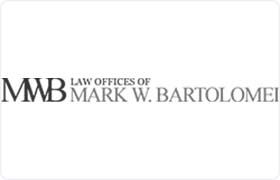Douglas Child Custody Lawyer, Massachusetts
Sponsored Law Firm
-
 x
x

Click For More Info:
-
Law Offices of Mark W. Bartolomei
51 Union Street Suite G10 Worcester, MA 01608» view mapDivorce & Family More Than 20 Years of Dedicated Service
Worcester divorce and bankruptcy attorney for more than 20 years.
800-931-6101
Includes: Guardianships & Conservatorships, Custody & Visitation
Heather O’Connor
Child Support, Divorce, Child Custody, Family Law, Alimony & Spousal Support
Heather O’Connor has been described as one of the nicest people you will ever meet, until you are an opposing party in the courtroom; she then puts ... (more)
FREE CONSULTATION
CONTACTFREE CONSULTATION
CONTACTKevin G. Diamond
Gift Taxation, Estate Administration, Guardianships & Conservatorships, Power of Attorney
Status: In Good Standing
FREE CONSULTATION
CONTACTFREE CONSULTATION
CONTACTAlbert J. Reinhart
Real Estate, Lawsuit & Dispute, Estate, Child Custody
Status: In Good Standing Licensed: 16 Years
Brian Aldo Consigli
Landlord-Tenant, Child Custody, DUI-DWI, Bankruptcy
Status: In Good Standing Licensed: 21 Years
Brynn S. Zawada
Immigration, Child Support, Child Custody, Criminal
Status: In Good Standing Licensed: 13 Years
Christina Pashou
Landlord-Tenant, Immigration, Employee Rights, Child Custody
Status: In Good Standing Licensed: 8 Years
 Mark Bartolomei Worcester, MA
Mark Bartolomei Worcester, MA AboutLaw Offices of Mark W. Bartolomei
AboutLaw Offices of Mark W. Bartolomei Practice AreasExpertise
Practice AreasExpertise

